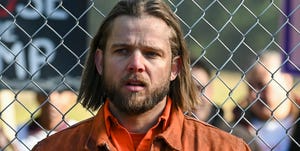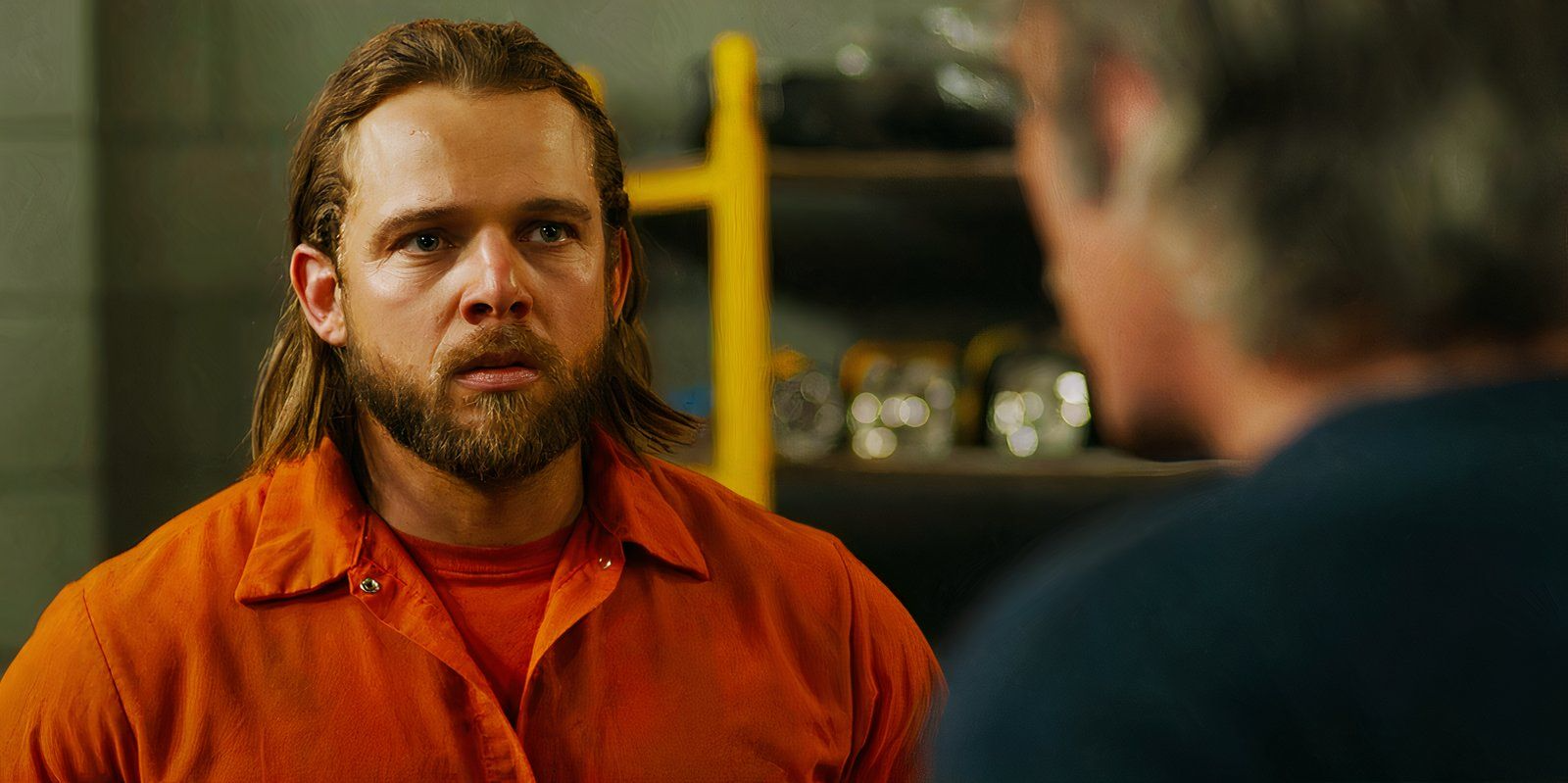
The Weight of a Wounded Man
When audiences first met Bode Donovan on Fire Country, he was angry, impulsive, and buried under the wreckage of guilt. A former star athlete turned inmate firefighter, Bode’s every action is driven by his desperate need for redemption. What viewers may not realize is just how deeply his pain also affects the man who plays him — Max Thieriot.
“I didn’t create Bode to be easy,” Max admits. “I created him to be human. And that means I have to carry a lot of emotional weight — every single day.”
As both co-creator and star of Fire Country, Max doesn’t get to step away from Bode’s pain after the director calls “cut.” The emotional toll of this character — his past, his grief, his mistakes — lingers long after the cameras stop rolling.
Writing the Wound, Then Wearing It
Max Thieriot helped build Bode from the inside out — crafting a man whose trauma is layered and ever-present. Bode isn’t just battling wildfires; he’s fighting himself, his past, and a system that refuses to forgive him.
From the pilot episode, Max made a decision: he would not sanitize Bode’s emotions. No false heroism. No polished redemption arcs. Instead, he dove into the mess — the grief of losing a sister, the shame of relapse, the sting of rejection, and the constant fear that no amount of sacrifice will ever be enough.
“When you write a character’s darkness,” Max says, “you start to feel it in your own bones. Then when you act it, it becomes muscle memory. You carry it home.”
The result is a performance that feels raw, lived-in, and heartbreakingly real. But it also comes with a cost.
Filming the Pain, Repeating the Trauma
Shooting emotional scenes — especially in a show like Fire Country, where stakes are high and trauma is central — means revisiting the same pain over and over again. Unlike real life, where emotions pass, filming requires Max to hold onto sorrow and recreate it from multiple angles, with full intensity, sometimes for hours.
One of the most brutal examples was Bode’s courtroom scene in Season 1, where he takes the fall for a fire he didn’t start. The combination of defeat, shame, and self-imposed punishment nearly crushed him — and Max.
“That scene broke me a little,” he said. “Because it wasn’t just acting. I had to believe that Bode didn’t think he deserved love or freedom. That’s a heavy thing to live in, even for pretend.”
Max has spoken about how, after emotionally taxing scenes, he often needs silence — to walk alone, to shake off Bode’s voice, to remind himself he is not the man he just embodied.
Emotional Safety: A Rare Priority

Hollywood rarely talks about emotional safety for actors. On action sets, there are protocols for stunts, fire, falls. But for the kind of emotional depths Max must access, there’s no padding, no harness, no “cut” that truly detaches the soul.
That’s why Max, as a producer, insists on building a safe environment on set — not just for himself, but for his entire cast. He has worked with trauma consultants, encouraged mental health check-ins, and ensured there’s always time to decompress after scenes involving death, addiction, or family estrangement.
“If we’re going to ask actors to bleed emotionally,” he says, “we owe them the space to heal too.”
Personal Connections That Cut Deep
Part of what makes Bode so affecting is how much of Max’s real life echoes inside him.
Max grew up in wildfire territory. He’s known people who’ve lost everything to flames. He’s watched addiction take root in his community. And he’s seen how systems — legal, social, familial — often fail the people who need redemption the most.
So when Bode begs for a second chance, Max isn’t just delivering lines. He’s drawing from a reservoir of real-life sorrow — for friends who didn’t make it, for families torn apart, for injustices that don’t fit tidy narratives.
“There’s a reason I can cry as Bode,” he says quietly. “Because some of that grief is mine.”
The Danger of Staying in Character
Many actors adopt coping techniques to avoid “emotional hangovers” — meditation, therapy, boundaries. Max uses a mix of silence, family time, and nature to return to himself.
Still, he admits: there are days when Bode’s heartbreak stays with him — days when he snaps too easily, when joy feels distant, when his own emotional reflexes feel raw.
“You live inside these characters, and sometimes they leave fingerprints,” he says. “Bode is still teaching me things. But sometimes, I have to tell him: not today.”
Max is particularly careful not to bring Bode’s mood home to his children. He may carry sorrow on set, but when he walks through the door at night, he makes a conscious choice to reconnect to laughter, presence, and warmth.
Why He Keeps Choosing the Hard Roles
Given the emotional price, why does Max keep writing and playing such complex, painful characters?
The answer is simple: he believes in truth.
Max doesn’t want to give audiences easy wins or clean endings. He wants to show them people who fail, who try again, who claw their way toward healing even when they don’t think they deserve it.
He knows that somewhere out there, someone like Bode is watching — and feeling seen for the first time.
“If one person watches Bode and says, ‘That’s me — and maybe I’m not too far gone,’ then it’s worth it.”
The Light Behind the Role
Despite the heaviness, Max finds purpose in Bode. The character has allowed him to start real conversations about addiction, incarceration, forgiveness, and fire trauma — both on screen and in real life.
He’s received letters from firefighters, former inmates, and recovering addicts thanking him for telling the truth — not the Hollywood version, but the messy, painful, hopeful truth.
And that truth, while difficult to carry, is also Max’s greatest joy.
“This role hurts sometimes,” he says. “But it heals too. For me. For others. That’s what storytelling is supposed to do.”
